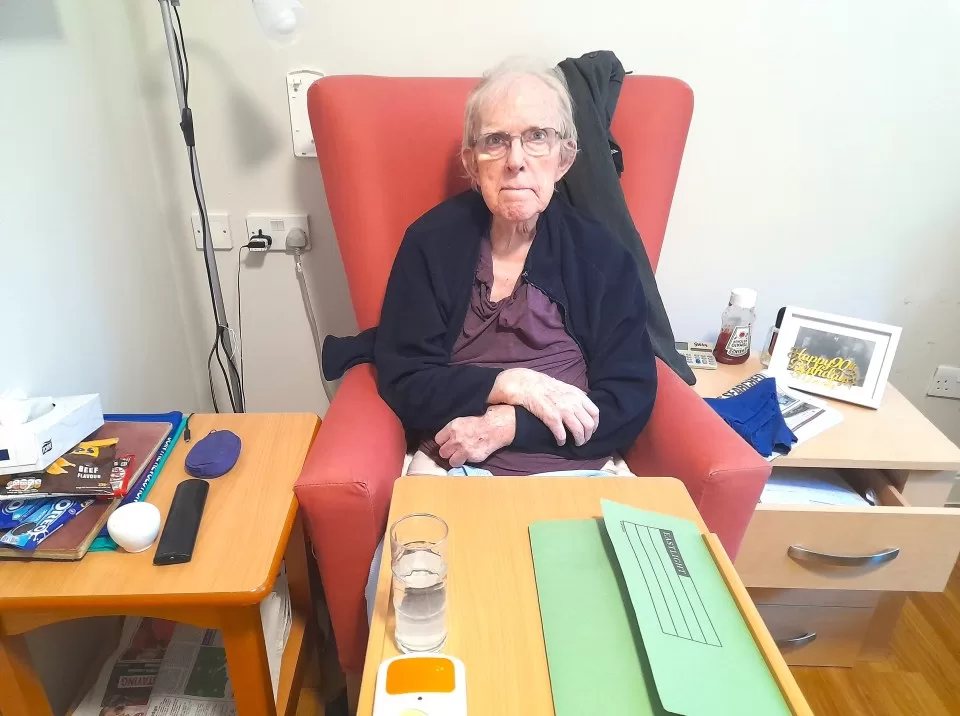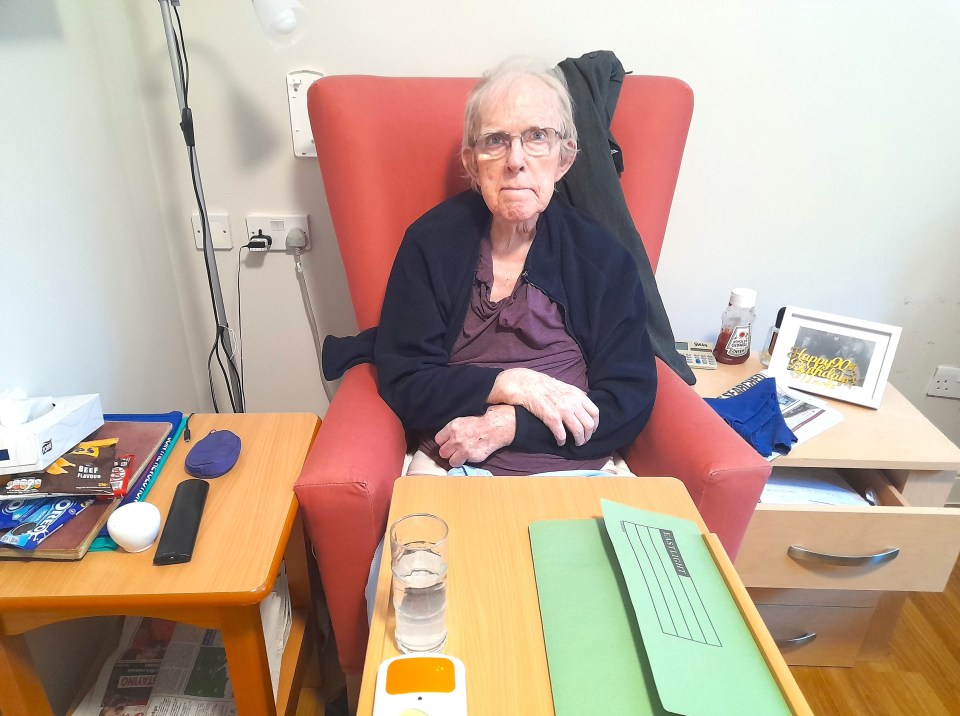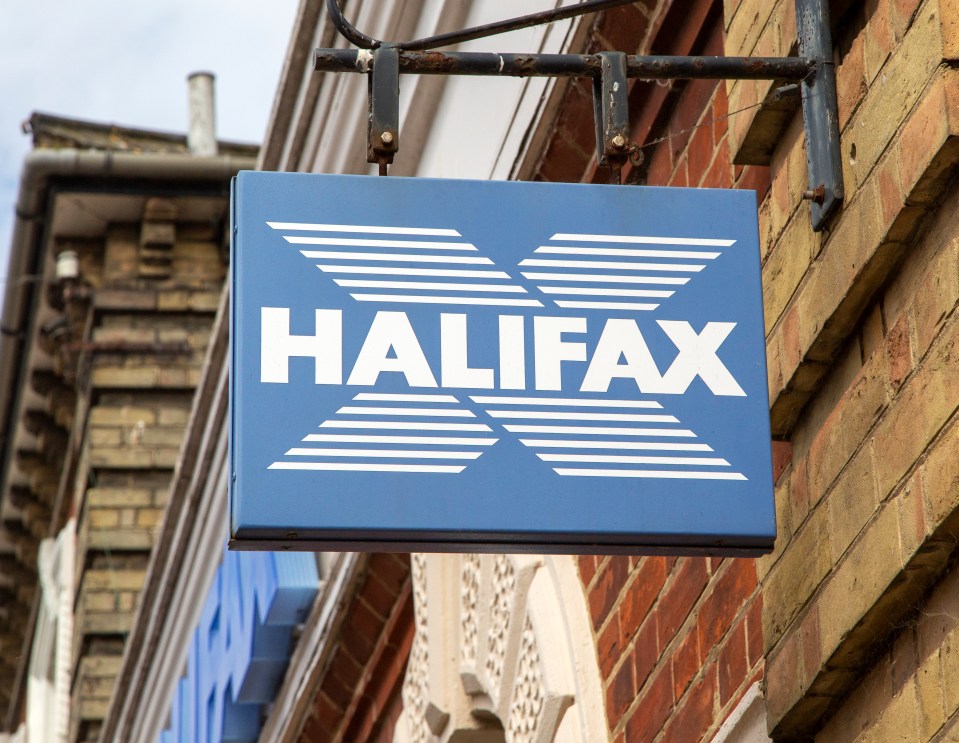A PENSIONER was refused access to his own bank account and was “treated like a criminal” before being turned away from a Halifax branch.
David Drew, 90, was left outraged after he was told he couldn’t see the local branch manager.
The retired shipping and cruise line worker feared he would not be able to pay his £5,600 monthly fees for his care home in Southampton, Hants.
Mr Drew has two savings accounts with the bank which have remained untouched for 30 years and left him with a substantial sum of money.
Having emptied his other accounts at other banks including Barclays, to pay for his place at Oak Lodge Care Home, he eventually had to dip into these savings.
Without having had any issues anywhere else, Mr Drew was shocked to learn he could not access his Halifax funds due to his passport and driving licence being out of date.
Speaking after the ordeal, he said: “It’s security gone mad.
“I’ve worked for 48 years of my life and I feel like I’ve done my bit.
“But now I feel like I’m being treated like a criminal when I haven’t done anything wrong.
“I don’t get out too much as I’ve not been very well and I don’t see the need in having to update my passport when I’m never going to use it again.
“The whole thing has been very stressful.”
Attending with a carer, he asked to see a manager but was told there were none available.
Despite being assured they would call him back, they did not pick up the phone for days – leaving him stressed.
He continued: “It was nearly two weeks, and I didn’t hear anything, I think it’s really poor and I’ve been disappointed by their whole attitude.
“I’d have liked them to be a bit more understanding and to help me.
“I offered them the opportunity to phone the care home to get my identification verified but they just didn’t seem interested.
“I think I can just about make my payment for next month but then I don’t know where the money is going to come from.”
Halifax has now admitted they “didn’t get this right” and since moved his savings into his current account and agreed to pay him compensation for his troubles.
The bank even apologised to the pensioner
A spokesperson said: “We’re sorry we didn’t get this right when he first contacted us and will be making a payment in recognition of this.”
Banks don’t have to explain why they’re closing your account
UNDER current rules, banks don’t always have to explain their reasons.
Guidelines for banks say: “You don’t have to explain to a customer why you’ve closed their account, but it can be helpful to do so.”
The Government wants to bring in new rules forcing banks to give account holders three months’ notice before shutting their accounts and provide an explanation.
But even then this wouldn’t apply where the bank suspects fraud.
Even now, it’s still worth asking your one to explain its decision as it has a duty to treat you fairly.
You can write to them saying you wish to make a “subject access request” to find out more information about why you’ve been ditched.
Why might my account be closed?
Your bank could decide to dump you simply because you don’t meet its terms and conditions.
For example, when you signed up you might have agreed to pay in a certain amount each month or to set up several direct debits.
In this type of situation, the bank would need to give you at least 30 days’ notice so you can move your money elsewhere.
Which? Money editor Jenny Ross says: “Under some circumstances, banks are allowed to close accounts without notice and without providing a reason.
“This includes suspected fraudulent use of the account.”
Your bank could put an immediate freeze on your account if it sees spending or large transfers in or out that seem suspicious.
It might block money from leaving your account to help protect you if it’s worried that you’ve fallen victim to fraudsters.
Similarly, if a large amount of money is received, it might suspect you’ve been caught up in a money-laundering operation.
Fraudsters can manipulate customers into becoming so-called money mules.
This means that they might be helping crooks to move around cash earned from crime without even knowing it.
Sometimes victims believe they are helping out a friend or that they are being paid for a job that seems legitimate.
After putting a temporary freeze on your account, the bank will then investigate more thoroughly.
If it’s still unsatisfied after this, it can permanently close your account.
What should you do if your account is closed?
It’s important to try to find out if there are any problems that might have triggered the closure.
For example, it might be that crooks have stolen your identity and applied for loans in your name.
Start by running a free credit check through a service like moneysavingexpert.com’s Credit Club, Credit Karma or Clearscore.
It’s best to try all three if you’re concerned in order to cover the three main credit agencies that keep records of your financial dealings.
The reports should help you spot if there are any accounts that you don’t recognise.
If you’re worried that your account might have been flagged as suspicious, you can also apply to two fraud-fighting organisations — Cifas and National Hunter – to find out what information they hold on you.
When you write, say that you would like to make a “subject access request”.
If you’re not happy with the way your bank has treated you, make a complaint.
After eight weeks, if the bank doesn’t respond or if you’re not satisfied, you can take your complaint to the Financial Ombudsman Service (FOS) for free.
If the FOS agrees that you’ve been treated unfairly and you can prove that you have lost out financially as a result, you might be able to get compensation.


